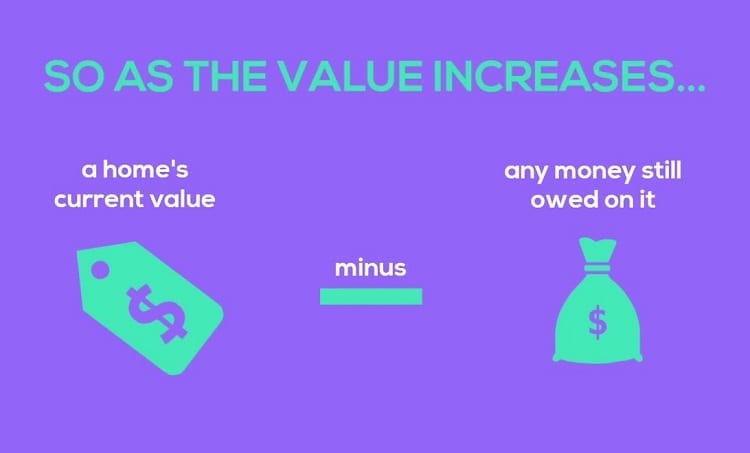You need lots of money to flip a home but it’s unrealistic to expect that it will always come out of your own pocket.
If you don’t have the cash on hand to spend on investment property, that shouldn’t stop you from flipping houses.
You can find various financing for flipping homes, so it’s important to know your best options.
What’s the best way to finance a house flip?
Although the first thing that might come to mind is getting a traditional loan to finance your flip, this is not the only solution.
There are other loans to explore as well as other strategies to fund your real estate goals.
To ensure you get the money you need to buy, fix, and resell properties, it can help you to consider different options to bring in cash.
Here’s a rundown of five of the best.
Contents
Getting A Loan For House Flipping

The first financing option that comes to the mind of most people is to get a traditional loan from the bank to finance their house flipping.
Sometimes, this isn’t the best option. It might be more valuable to consider a private loan. What’s the difference between a traditional and private loan? Let’s explore them both in greater detail.
Traditional Loan
A traditional loan essentially works like a mortgage loan in that you’ll decide how long the term of the loan should be and you’ll pay a down payment so the bank can give you the money you require to flip a house.
This amount could be around 20 or 30 percent of the purchase price of the investment property you’re interested in buying.
While that seems like a good idea, the reality is that traditional loans are not always suitable for flipping houses.
If you’ve been flipping houses successfully for a while now, this improves your chances of getting a traditional loan approved.
If you’re a beginner, though, it can be trickier to get this loan – and it might not be worth your while.
There are important cons of traditional loans to consider, whether you’re a pro or just starting out in house flipping.
- Getting a traditional loan tends to take a long time. You’re looking at approximately over a month, but it could actually take up to three months. This can result in missed opportunities when buying houses to sell. You can’t just go ahead and purchase a house that appeals to you because you’re busy waiting for the money to be approved.
- You’ll have to submit lengthy applications and ensure you have a solid income. Traditional lenders will focus on the salary you earn compared to the required loan payments you’ll be expected to pay every month. If you work for yourself, you might not have a stable and consistent income, which could disqualify you.
- In addition, you need a healthy credit score. This isn’t always a viable thing for everyone. However, there are ways to improve your credit score. These include not using your credit cards, or at least limiting yourself to one card and only using it when it’s extremely necessary. Another tip is to pay off your debts. If you have any maxed-out credit cards, you could improve your credit score by almost 100 points just by paying them off, as credit score expert John Ulzheimer tells Nerd Wallet.
What to bear in mind when it comes to credit: It might take a bit of time to see your credit score improve once you’ve made those positive changes.
You have to be patient to wait at least a few weeks, if not more. This is because some companies submit credit reports daily, while others do so on a monthly basis.
Based on this, waiting for your credit score to improve might feel unrealistic when you want to start house flipping. You want more readily available money. That’s where private loans come in.
Hard Money Loan

A hard money loan is financing that private lenders give to property investors.
It’s probably the best option for people who already have experience with successfully flipping homes because their healthy track record shows potential lenders that the project will be completed and they will get their money back.
There are important benefits to taking out a hard money loan instead of a traditional loan. These include:
- Lenders focus on property value. This is the most important thing for them because the loan they give you will be secured by the property you’re purchasing. The property value is more important to private loan lenders than evaluating your income, which can help you if you’re an entrepreneur.
- Your loan will be approved faster than a traditional loan. Fit Small Business reports that because they require lower requirements for approval, a private loan can be approved in as little as 15 days.
- These loans finance properties that need work. Private loans are perfect for house flipping endeavors because the lenders will fund properties that are in bad condition. Traditional loan lenders, on the other hand, will have many guidelines regarding the state of a property and are unlikely to fund financing for properties that need fixing. The whole point of house flipping is to fix and flip homes, so private loans can be much more useful.
However, one of the cons of hard money loans is that they have a short payoff period.
This can put pressure on you to sell your investment property quicker to avoid large payments, but that’s not always possible.
Home Equity Loan

There’s another loan option that can work for you if you’re investing in property: a home equity loan!
When using a home equity loan as financing for flipping houses, how it works is that you receive a lump sum of cash that you’ll use for your investment property.
A home equity loan can be taken out alongside a mortgage if that’s your current situation.
However, you cannot take it out on your investment property.
While that might sound strange, a home equity loan is a loan you take out on the property in which you are currently residing.
In addition, this financing option will work best if your current residence has more than 15 percent equity.
One of the biggest benefits of a home equity loan is that you are given a maximum budget and then wait for the right opportunity – such as a great investment property – to use it.
You tend to pay less interest on a home equity loan when compared to a personal loan because your house is your security.
Of course, there’s always the risk that you are unable to pay back the loan, which can be risky because you risk losing your home to foreclosure.
How To Calculate Home Equity

You can calculate your home equity by taking the current value of your home and subtracting the balance you owe on your mortgage.
If your home is worth $200,000 and you owe $50,00 on your mortgage, you have $150,000 in home equity.
A-Line Of Credit (HELOC)
A line of credit is similar to a home equity loan, but it does have some interesting perks for house flippers.
How it works is that you take out a loan on the investment property you’ll be flipping instead of the home in which you live.
This can be riskier, though, which is why a HELOC tends to have higher rates.
A HELOC basically works like a credit card.
Instead of being given a lump sum of cash, you are given credit in the same way as you would be able to get credit from a credit card.
You have a maximum amount of money available for you to borrow and you can borrow it whenever you need it.
So, you could borrow money from this line of credit many times throughout your house-flipping process, which is a realistic and sensible option.
It can take up to a month or more for a HELOC to be approved, though, and the rates for this type of financing are based on your credit history and score, along with the property you’re investing in.
What If You Want A Different Financing Option?
You might not want to take the above financing options when flipping houses. That means you should consider other options.
These include:
Borrowing Money From Loved Ones

While this can be a tricky or awkward thing to consider at first, if you’re starting out flipping houses it can be an ideal situation if you know someone who’s interested in investing in real estate who you trust and who trusts you.
You must just ensure that you prevent any complications by putting the loan terms in writing, such as the interest rate and how long it will take you to repay your loved one for the loan.
The house you’re going to flip can also be used as collateral for the loan in case you don’t manage to pay back the money.
By treating a loan from a loved one with the same seriousness as a regular loan, you can enter into business with family or friends without making things complicated or putting your relationship or business venture in jeopardy.
Finding Investors For Home Flipping
If you don’t like the idea of borrowing money from loved ones, it might be a better idea to find an investor.
This can also have other benefits, such as enabling you to team up with a like-minded person who wants to join you in your house-flipping adventure.
What To Look For In An Investor
There are some things you should look out for when finding the right investor. They should be:
- Someone who is qualified. The investor should show you proof that they have access to loans and/or cash.
- Someone you find it easy to communicate with. You want to join forces with an investor with whom you have open and clear communication. This is important because you will be discussing the terms of the investment, the house-flipping process, as well as both of your roles when it comes to the work you will put into your investment property. You don’t want any misunderstandings or difficulties.
- Someone who will sign an agreement. You should never proceed with an investor who doesn’t want to sign a partnership agreement. Having terms down in writing will prevent complications and disagreements, such as when it comes to how much money you will both get from the profits you make.
If you’re interested in finding a private investor, you might be wondering where to meet such a person.
The good news is that there are many different ways in which to find the right investor. These include:
Consulting With A Real Estate Agent

Since real estate agents tend to work with investors on projects, they might have contact details for you if they’ve previously worked with investors on a similar project to what you’re interested in undertaking.
Speaking To Friends Or Families
Sometimes the private investor you’re looking for can be found in your family or social circle, so it’s worth putting it out there that you’re looking for an investor and see if anyone can recommend you to someone who has the cash you require to ensure successful financing for flipping houses.
Joining House Flipping Investment Groups
These groups are made up of people who network with each other to discover new flipping opportunities and invest in them.
They’re not only a valuable lead to help you find an investor for your house flipping, but interactions with people in the industry will also increase your knowledge, which can benefit other stages of the house-flipping process.
This can be the case when you need to find a quality renovation team.
You can search for house flipping investment groups on sites such as MeetUp.
Real Estate Crowdfunding

This has become popular over the last few years.
How it works is that several people will invest small amounts of money in a project on a crowdfunding website.
House flipping crowdfunding investments usually take the form of either debts or equity.
- Debt crowdfunding: this means that the investors in the project will buy a piece of the loan you need. Investors will earn money monthly through the interest that’s charged on the loan, and a balloon payment will be made at the end of the loan’s terms. You’re looking at up to 36 months when it comes to the loan terms, but they tend to be short term, meaning that lenders will get their profits quicker.
- Equity crowdfunding: this means investors buy a portion of the property that you’re flipping. The profits will be shared between the investors. It’s common for investors to have to pay a minimum of $5,000 to be approved for this process, and it is longer-term than a debt crowdfunding project.
While crowdfunding can seem tempting, there are some downsides to bear in mind.
The potential for profit and equity in the house you’re purchasing will be what investors will want to look at as deciding factors.
Your credit report, inspection report of the property, and proof of funds might also be required.
As a borrower, you’ll have to pay a large number of fees on crowdfunding sites, such as interest charges and closing costs.
In addition, some crowdfunding sites won’t approve someone who’s inexperienced in house flipping as this seems like a great risk.
Related Questions
How Much Do You Need In Your Contingency Fund?
A contingency fund is a must when borrowing money.
Make sure it contains roughly 25 percent of the money for your house flipping project so you’re covered for unforeseen costs.
You don’t want to run out of money as it can lead to problems with your investor or partner, and decrease your profits.
How Should You Avoid Overfinancing?
Having too much financing for flipping houses can result in greater costs because you’ve borrowed more money than you need.
This will make interest fees increase.
Once you’ve taken into account the cost of the investment property, remember that a rehab usually costs 10 percent of the purchase price.
Bottom Line
Just because you don’t have enough money to purchase an investment property, it doesn’t mean you shouldn’t start house flipping.
Even without money in your pocket, there are various ways in which you can gain financing for flipping houses.
However, it’s important to choose the right one for you, whether that’s a hard money loan or involves teaming up with an investor.



